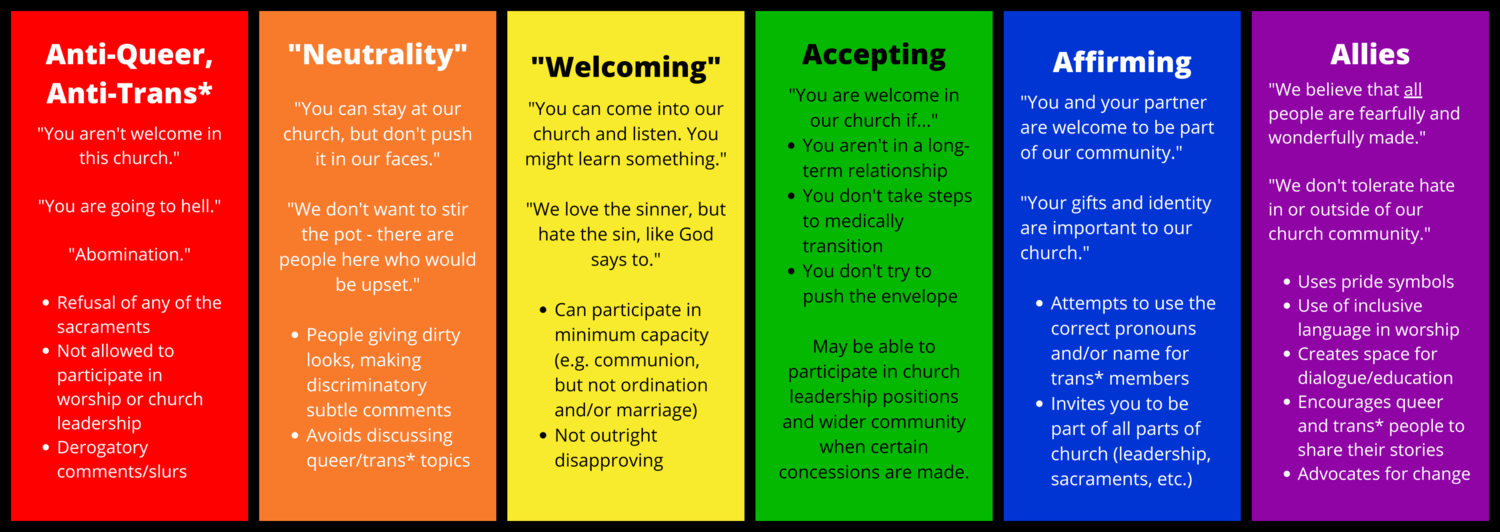Our Goals
Create a safe space for people in the Diocese of Huron that affirms, welcomes, celebrates, and loves everyone for who they are.
Consider the pastoral implications of the 2019 General Synod Marriage Canon Vote and assist individual parishes in having conversations on equal marriage.
Facilitate diocesan conversations on the evolving understandings of gender and sexuality.
Host deanery conversations and educational workshops on topics of gender identity and sexual orientation.
Provide gender and sexuality-affirming liturgical resources to honour and recognize important days and moments.
Represent the Diocese of Huron nationally as a voice of affirmation and allyship.
The Journey of a Church
Churches often experience discernment processes as they seek to better understand what God is calling them to. Here's just a few ways to explore how to move away from "welcome" and "affirmation" into "allyship".
(The original diagram was created by Anthony Venn-Brown, and then adapted and added to by members of the Proud Anglicans of Huron committee).

The Diocese of Huron is situated on the ancestral beaver hunting grounds of the Algonquin, Haudenosaunee and Attawandaran peoples; the traditional and unceded lands of the Anishinaabe Peoples, of Walpole Island, Kettle Point and the Thames, the settled people’s Haudenosaunee Confederacy, at the Grand River and the Thames and the Lenni Lenape Delaware people’s of Moraviantown and Muncey.
Land acknowledgements are an important step for reconciliation, but they are not enough. We must collectively work to advance reparations from the harms caused by colonialism, including its legacy and ongoing mechanisms. We must also work to return unceded lands and territories, to restore a relationship of peace and friendship, and to honour the treaties and sacred balance with the land and planet Earth.